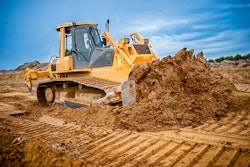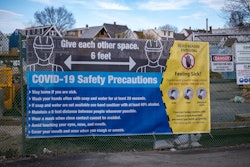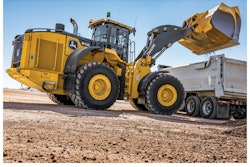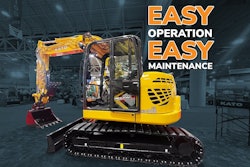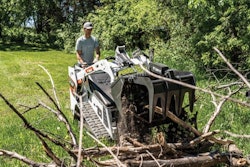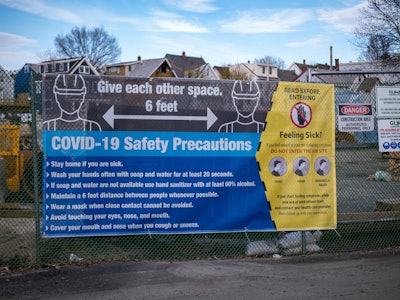 Credit: Micha Weber / Shutterstock.com
Credit: Micha Weber / Shutterstock.comSeveral organizations have developed plans and best practices for reducing the hazards associated with the coronavirus on construction job sites. We’ve compiled and merged the best practices from a number of sources here including Department of Labor and the Occupational Safety and Health Administration, Building Trades Unions, and the Center for Construction Research as well as tips we’ve picked up from talking to contractors around the country.
Encourage workers to stay home if they are sick
The federal government is offering emergency sick leave for businesses during the pandemic. Employers should apply for this program as soon as possible. Details can be found here: https://www.dol.gov/agencies/whd/ffcra
Train workers how to properly put on, use/wear, and take off protective clothing and equipment.
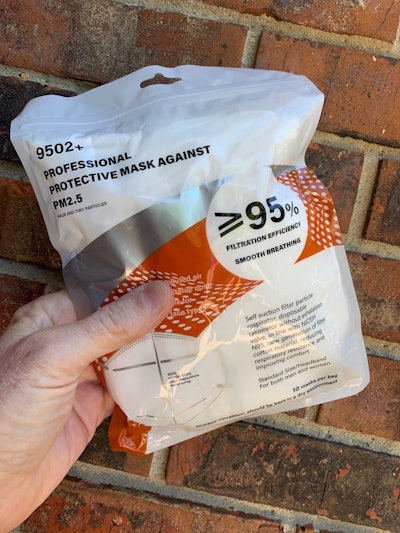
Allow workers to wear masks over their nose and mouth to prevent them from spreading the virus.
You shouldn’t just “allow it,” you should insist on it any time workers will come within six feet of each other or subcontractors, suppliers, oilers, mechanics and dealer representatives.
Continue to use other normal control measures, including personal protective equipment, necessary to protect workers from other job hazards associated with construction activities.
The coronavirus isn’t the only hazard out there. Make sure you’re not overlooking others. Some PPE can be awkward to wear. Workers with glasses will find masks often cause their glasses to fog up. Remind your crews of these issues and look for better quality PPE if needed.
Advise workers to avoid physical contact with others and direct employees/contractors/visitors to increase personal space to at least six feet, where possible.
Tell your own workers as well as suppliers, subcontractors and others to use texts, phone calls and emails rather than face to face conversations whenever possible. Enforce the six foot rule when texts, when face to face meetings are necessary.
Where work trailers are used, all workers should maintain social distancing while inside the trailers.
Also sanitize the trailers daily. Clean all surfaces, especially door handles and places or surfaces people touch with soapy water or disinfectants.
Promote personal hygiene. If workers do not have immediate access to soap and water for handwashing, provide alcohol-based hand rubs containing at least 60 percent alcohol
If workers don’t have immediate access to soap and water for handwashing, provide alcohol based hand wipes containing at least 70 percent alcohol. A lot of contractors we know are setting up hand washing stations on outdoor job sites and at the entrances to the shops and other facilities. Pay particular attention to portable toilets. Put sanitizing wipes and supplies in all your portable toilets and instruct users to be especially vigilant about wiping down the door handles on both sides. On large job sites with multiple subcontractors consider putting a lock on your portable toilets and designating them for your people only.
Use Environmental Protection Agency-approved cleaning chemicals from List N or that have label claims against the coronavirus.
Encourage workers to report any safety and health concerns.
Use your regular safety briefings and tailgate talks to tell workers everything they need to know about coronavirus safety. If you have a lot of equipment or trucks that are shared, check out our guide to super-cleaning cabs using simple household cleaners and techniques from a master car detailer by clicking here.
Put someone in charge
Designate a site-specific COVID-19 officer at every job site. This person will train workers with the most recent information on the hazard and control measures, including social distancing, hand washing facilities on site, and how high-touch surfaces are disinfected.
Screening
Ask workers to self-identify symptoms of fever, coughing, shortness of breath, chills, muscle pain, headache, sore throat, and new loss of taste or smell each day, before the shift, mid-shift, and at home. Screen workers with no-touch thermometers at the beginning of each shit or when they become ill.
Social distancing
Keep workers at least six feet apart. Identify and eliminate or restrict access to places where workers will be in close contact such as hallways, break rooms and construction trailers. Minimize personal interactions and maintain the six foot distance when engaging with delivery people and others outside of your organization. Ask parcel delivery services to leave packages at the door. If your workers travel in crew cab trucks put one up front driving and one in back on the opposite side. No more than two to a truck. For trucks with now rear seat limit those to drivers only. Avoid handshakes and meetings with more than a handful of people.
Decontaminate office spaces
Clean and disinfect all shared office spaces, computers, copy machines, door handles tables and desks and restrooms with alcohol based products or dish soap and water on a daily basis. A dilute solution of water and dish soap will work or use Simple Green.
Older workers
Workers above the age of 55 are at greater risk of contracting the virus than others. For guidelines on how to keep these workers safe go to: https://www.cdc.gov/coronavirus/2019-ncov/specific-groups/high-risk-complications.html.

